by Tim McMahan, Lazy-i.com

Simon Joyner, Step Into the Earthquake (2017, Shrimper)
A follow-up to yesterday’s entry…
Prior to leaving on his European tour at the end of October, I asked Simon Joyner about his song “As Long As We’re in Danger,” mentioned in the column that appears in this month’s issue of The Reader, which you can read online here. In fact, if you haven’t read it yet, please do so now to put the following in context.
Joyner posted the song’s lyrics on his Facebook page, along with comments about why he wrote it and what it means. As mentioned in the column, the timing almost seemed like Joyner was making a pre-emptive move to head-off any controversy surrounding the song’s lyrics. So I asked him about it.
Was the song written before the blow-up over Noah Sterba’s song?
Simon Joyner: The song was written a year ago, during the election year, long before any blow-ups in Omaha on social media that I was aware of. It takes awhile to get an album recorded and then manufactured and released but it is, in fact, an older song.
Was publishing the lyrics and the explanation a way to get the issue out in the open rather than wait for those who might be offended to discover it?
Due to the corrosive nature of social media, I wanted to contextualize my song before it could be taken out of context by anyone who wanted to misrepresent its themes and intentions. So that’s why I posted the song and explanation. But Facebook and Twitter, it’s like Telephone, things spread and get presented out of context and editorialized for new people on so many different threads where my statement and the full lyrics couldn’t be seen for context. Knowing it would happen either way, I at least wanted to set the tone on my own page. The song is unambiguously targeting racists and racism in the country, xenophobia generally speaking, and the identity politics that are used to divide us. I hoped that by explaining who the narrator was in the song and exactly what my intentions were and what I was targeting, it would help direct the conversation so we could start in the place of recognizing we’re on the same side here on the broader points the song addresses. Whether or not people agreed that I should have used the word in my effort to paint a scathing portrait of America at its ugliest, I wanted them to know that the rage in the song is directed at those who hold those feelings and I wanted them to know I think this is an age-old American trait, not something new.
Most people at least understood my intentions and appreciated that I was commenting on our culture even if some thought that using the word to expose those painful realities was insensitive or unnecessary. I’m sensitive to those views and found that criticism valuable. But some people promoted the idea that the use of the n-word even in a song obviously against racism made the song racist and made me a racist. That’s a really irrational take. I’m not a racist and neither is the song. I was describing the world we actually live in, not the one we aspire to live in. That’s why I used the word in the song but would never use it in my life.
Do you have any regrets using the N-word in the song or posting the lyrics/explanation?
I don’t regret posting the lyrics and explanation at all. I think it made space for a lot of good dialogue on very important issues and that was really encouraging. Once the lyrics of the song were taken out of context on different threads and people started targeting me rather than discussing the issues the song brings up, it took a turn and followed a predictable corrosive path we are used to seeing on social media platforms. It became obvious that most of the people commenting at a certain point hadn’t read the lyrics of the song but were reacting to things they were hearing and seeing posted which weren’t accurate. The conversation is over when it gets to that point. But I’m not going to throw the baby out with the bath water, I had a lot of good discussions with people who wrote me directly and I saw a lot of people really engaging the topics on my thread too and being respectful of those with different opinions. Even for the brief window of time that was happening, it was nice to see.
Do I regret the word choice in the song? I am definitely sorry that people experienced pain because of my word choice. I know the n-word is a painful reminder of the racism black people have experienced personally throughout their lives. Since the object of my song was to target the racism all around us, within our institutions and out of the mouths of actual racists who have been emboldened by the current administration, I was especially sad to hear that even some of the people who agreed with the points I was making also felt hurt over how I chose to make those points.
When I wrote the song I thought about the master/slave dynamics at the root of modern racism and on display in the NFL, for example. Colin Kaepernick hadn’t yet begun his kneeling protest when I wrote the song but I think the overwhelmingly negative reaction to his dignified, respectful protest, makes those master/slave dynamics all the more apparent to the naked eye. We have the manager of the Cowboys telling his players if they kneel, they don’t play, using threats to suppress their first amendment rights. So, although I was tempted to use a euphemism or a weaker word about how America feels about black people, and spare myself the controversy, I thought I’d be letting America off the hook. When people talk about moving away from use of the word, I always assume they mean in our lives and public discourse, which I totally agree with. But that’s aspirational, it hasn’t happened yet, not everyone in our lives has gotten that memo. So as long as we have people still talking that way and thinking that way, and more importantly, systems still designed to marginalize people of color, it seems important to be able to call attention to it and to use the language these people are actually using if we want to depict how vile this thinking really is. I don’t think it’s a bad thing for us to have extreme reactions to art we experience, I think it’s good, but I personally don’t enjoy making art that creates painful reminders for people. So, in that sense, I regret using the word, but I wonder if I’d have been doing black people a disservice to suggest in my song that America feels less harshly towards them, when all evidence points to the contrary.
From what I can tell, you’ve stayed out of the fray on your Facebook post, standing back and letting the critics voice their concerns. Why haven’t you reacted online (or have you been responding privately to these critics?)
I stated on Facebook that I didn’t think social media was a healthy place to have real dialogue about important issues and encouraged people to write me directly if they wanted to discuss my statement and my song. I responded to anyone who wrote through direct message or email and I did have some good discussions that way. But it’s impossible to reply thoughtfully in real time when so many people are commenting on something. A mob mentality can develop really quickly on all sides so it gets pretty gross. People will say things to one another that they’d never say to the other’s face. So much of it is because their “friends” are watching too. You get the feeling that people are addicted to shaming more than they are interested in convincing anyone of anything in particular or reaching an understanding of different viewpoints. It’s not interesting to me at all to watch people behave that way. It’s depressing. So, I stay out of that stuff in general. If I hear about someone I know writing something or saying something that surprises or concerns me, I call them up or text them or email them to talk to them directly. I think people deserve that courtesy and respect and no one deserves to be publicly humiliated. People seem to love it though and some are building identities around this behavior.
Finally, after your European tour, do you intend on hosting a local album release show for Step Into the Earthquake?
I don’t know. I don’t have anything set up in town yet but we’ll see if it works out with everyone’s schedule when we get back from this tour.
* * *
It’s worth noting that there have been a couple national reviews of Step Into the Earthquake that mention the controversial lyrics. Dusted Magazine went as far as publishing a portion of them in its review. So did AllMusic.com in its review. We’re still waiting for that Pitchfork review, however…
* * *
Read Tim McMahan’s blog daily at Lazy-i.com — an online music magazine that includes feature interviews, reviews and news. The focus is on the national indie music scene with a special emphasis on the best original bands in the Omaha area. Copyright © 2017 Tim McMahan. All rights reserved.

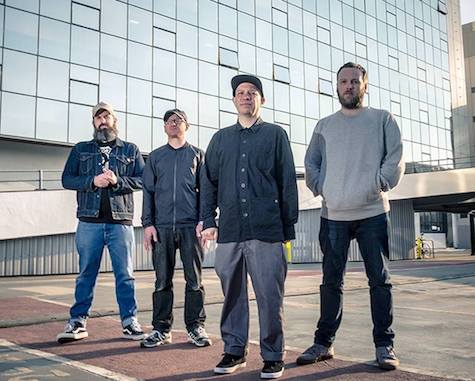
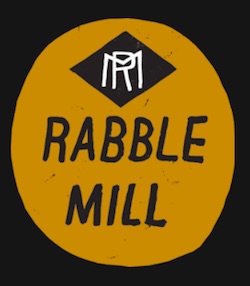


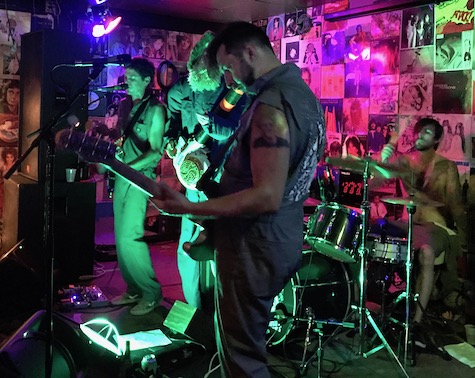
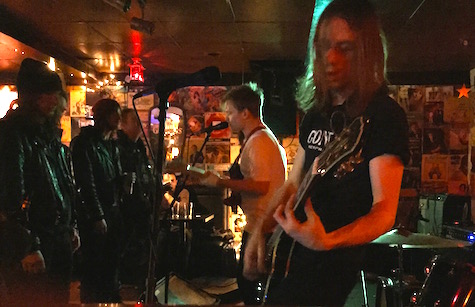

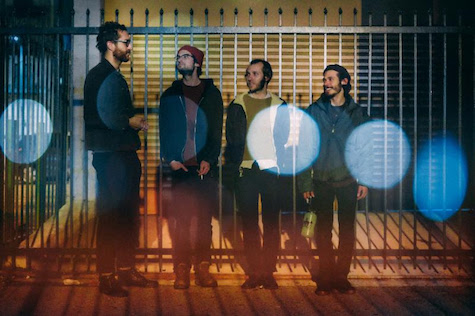

Recent Comments